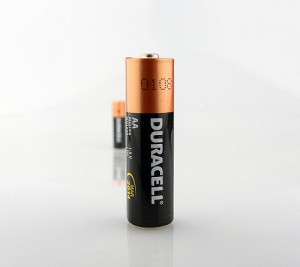This year I had a few goals in mind when buying gifts for my family:
- Keep it simple
- Buy gifts without a lot of packaging materials
- Use my reusable bags as much as possible
- Try to buy things that don’t need batteries
The only major mishap was the shocking realization on Tuesday that Hanukkah started on Wednesday night. I had one day to pull it all together. Somehow I did it and we are ready for the 8 crazy nights.
During my speedy shopping experience, I was really focused on getting the job done. In hindsight, I was able to stick to most of my goals. I was surprisingly successful in finding gifts that don’t need batteries- with one exception, my son’s new watch.
Batteries are a necessity in so many ways, making our lives convenient and portable. With this need comes a tremendous amount of waste. Americans toss almost 180,000 tons of batteries each year, most being single-use batteries.
The hard facts (battery truths)
- About three billion batteries are sold annually in the U.S. averaging about 32 per family.
- Batteries contain heavy metals such as mercury, lead, cadmium, and nickel, which can leak and contaminate the environment when they are thrown away.
- A car battery contains 18 pounds of lead and one pound of sulfuric acid.
- Household, disposable batteries come wrapped in plastic packaging-adding more plastic to our overflowing landfills.
- Don’t throw any used batteries in the garbage. Save them for a hazardous waste pickup in your community, or take it to your local hazardous waste management facility (call your local Department of Public Works for the closest location to you). You can check check with Earth911 for a listing of local drop off locations.
- Your batteries come wrapped a lot of excess packaging-wrapped in plastic and cardboard-all of which end up in a landfill.
In most cases rechargeable batteries are the greener choice
- Alkaline single-use batteries are much safer than their pre-1997 version, but they still can’t be recycled. Rechargeable batteries can be recycled.
- Rechargeable batteries are more costly upfront, but can be used reused multiple times. They, like single-use batteries, still contain heavy metals so be careful about disposal. Green Batteries is a great site for all your rechargeable battery and charger options.
- Four rechargeable batteries can replace approximately 100 regular alkaline batteries.
- For rechargeable battery recycling options check with Call2Recycle for a location near you. California is a special case when it comes to recycling batteries-requiring recycling of more types of batteries than other states-always ahead of the game, aren’t you California?
- Recycling batteries keeps heavy metals out of landfills and the air. Recycling also saves resources because recovered plastic and metals can be used to make new batteries.
Disposable v. Rechargeable
It is impossible to avoid the need for batteries- cell phones, remotes, flashlights, hand-held games, cameras-the need is far and wide. If some of your holiday gifts need batteries, Earth911 suggests we think about what type of gadget will be using the batteries. If the device isn’t used often and doesn’t use a lot of power (i.e. remote) it might be best to use a single-use battery. If the gadget needs portable power on a regular basis (i.e. cell phone) go rechargeable.
Greenest Choice
Buy gifts that don’t need batteries. If your gift requires batteries, try to include rechargeable batteries. If you are feeling really generous include the charger too.
Happy shopping!
If this post helped you please share it with your friends. And please become a Facebook Fan! Thanks!
This post is part of the 3rd Annual Holidays Carnival, Holidays Without the Hoopla, for Green Moms Carnival hosted this month by Jenn of The Green Parent. Be sure to check out all the other great ideas for Holidays Without the Hoopla.



